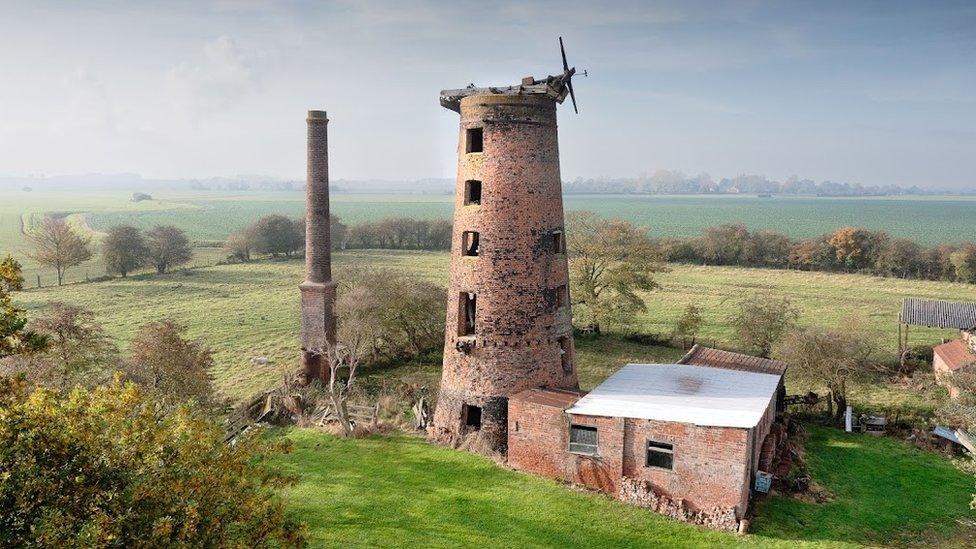Sweet Track: 6,000-year-old Somerset walkway is preserved
- Published
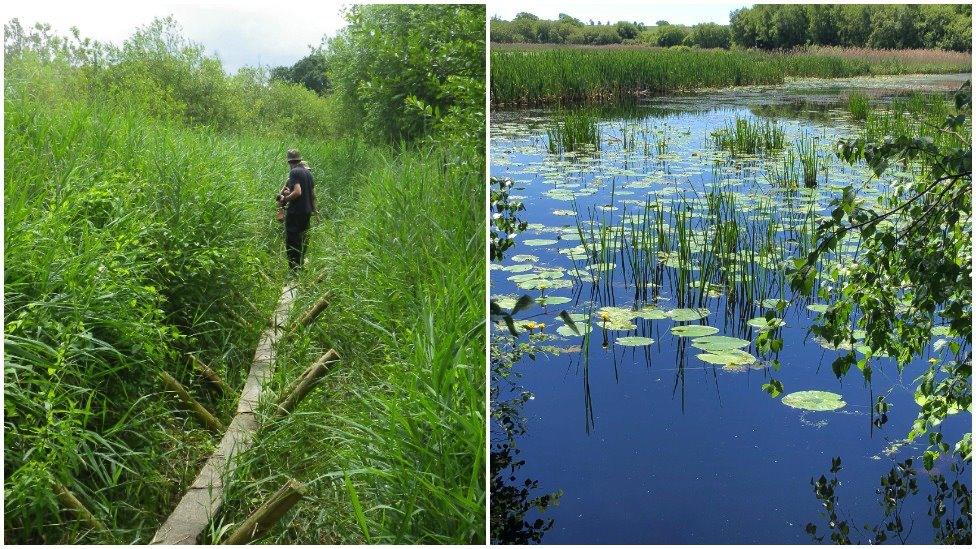
The Sweet Track in Shapwick Heath National Nature Reserve is protected as a scheduled monument
A 6,000-year-old wooden walkway over wetlands is no longer under threat thanks to conservation work.
The Sweet Track, in the Shapwick Heath National Nature Reserve in Somerset, is set to be removed from Historic England's Heritage at Risk Register.
The prehistoric track was built by the first farming communities in 3,806 BC and is the UK's oldest wooden walkway.
Julie Merrett from Natural England, said they were "very proud" of their work to protect habitat and history.
The Sweet Track was designed to allow people to cross 2km (1.2 miles) of reed swamp, joining an island in the floodplain to nearby hills.
Historic England funded a research project into the track, which was found to be in "miraculously" good condition because it lies within waterlogged peat, where the lack of oxygen prevents decay.
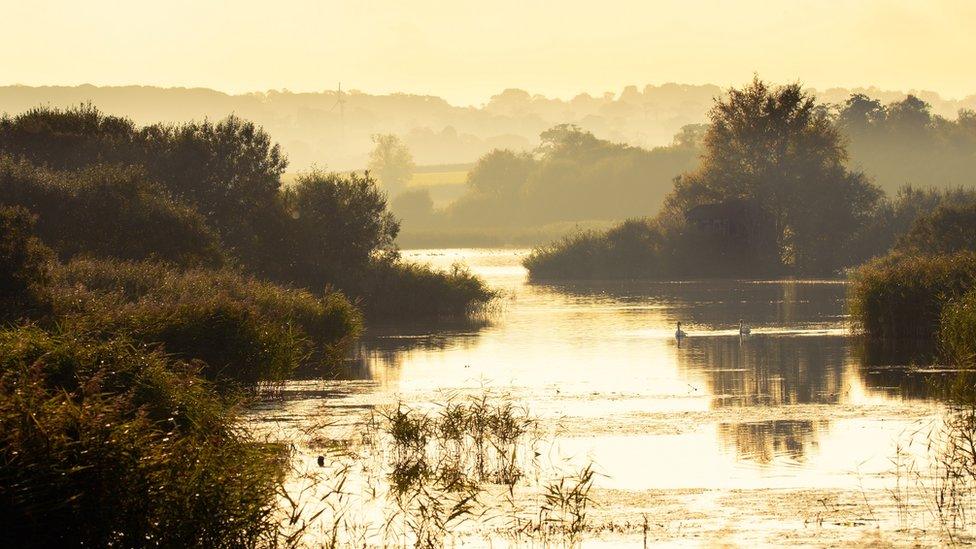
The track runs through Shapwick Heath National Nature Reserve
The organisation said the result shows how "investing time and resources into managing wetlands can benefit our cultural heritage".
"As well as preserving the Sweet Track, peat is a great source of locking away carbon as part of a properly maintained wetland whilst creating a home to diverse wildlife unique to the Somerset Levels," said Ms Merrett, Natural England's Senior Reserves Manager.
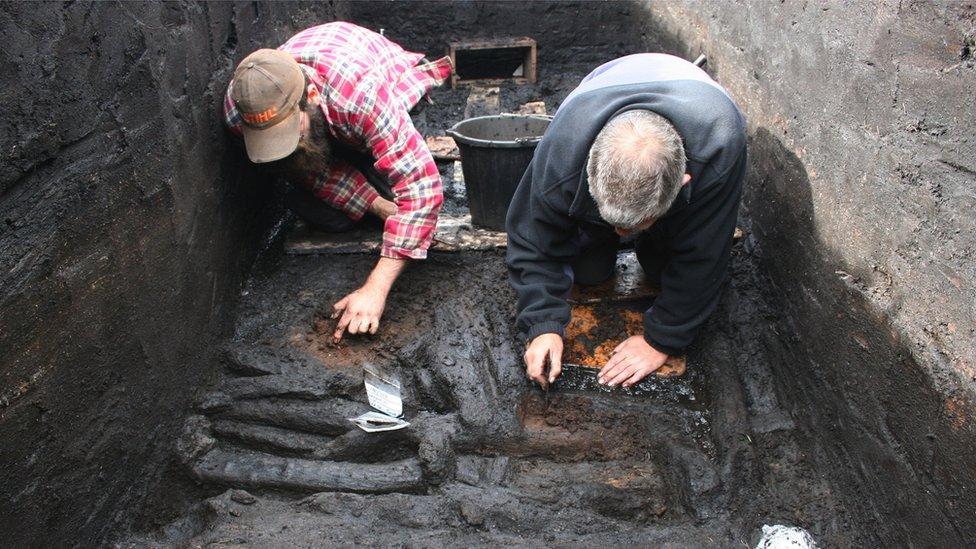
The four-year research project examined the condition of the track and monitored the environment that surrounds it
The Sweet Track was built at the beginning of the Neolithic period, dating back to the winter or early spring of 3807/3806 BC.
Objects found beside the trackway including flint axes and pottery, which are believed to have been deliberately placed in the water as religious offerings, making the track one of the UK's earliest ritual monuments.
The report also identified that there is still a risk that the peat surrounding the track will dry out due to predictions of increasingly regular hot, dry summers.
'Future generations'
John Ette, partnerships team leader at Historic England, said: "Climate changes are likely to have a significant impact on England's cultural heritage over the coming decades."
He added that the Sweet Track "provides a marvellous example of nationally-important nature and archaeology being protected from those risks alongside each other".
Archaeologist Richard Brunning said: "It is heartening to have this example where the incredible preservation of this special site will be maintained for future generations."

Follow BBC West on Facebook, external, Twitter, external and Instagram, external. Send your story ideas to: bristol@bbc.co.uk , external
- Published9 August 2021
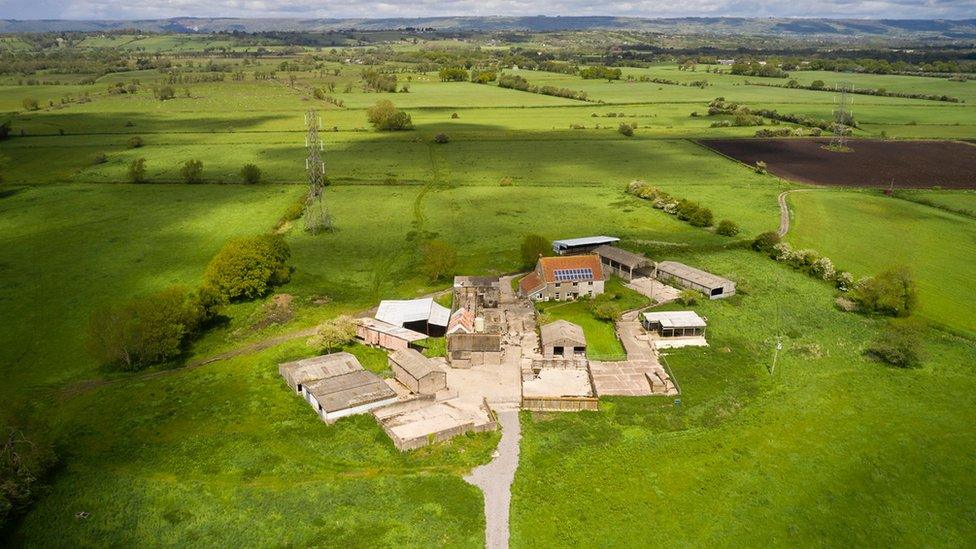
- Published10 August 2020

- Published15 December 2021
